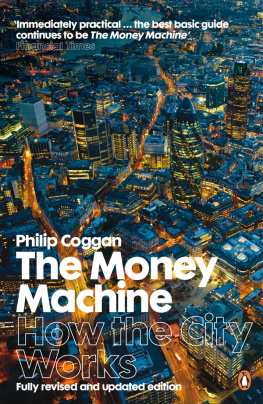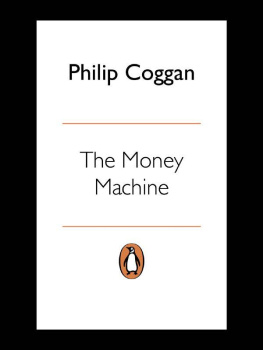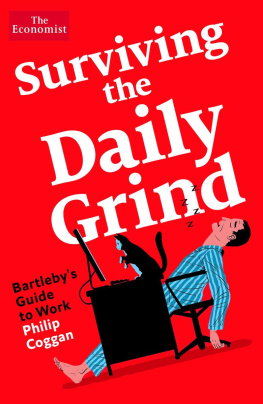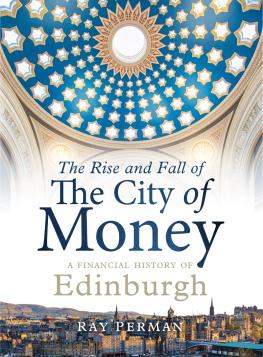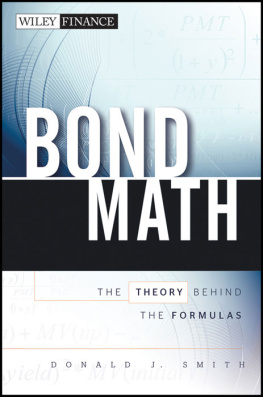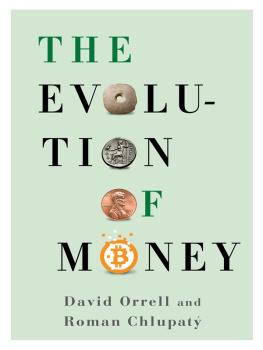Philip Coggan - The Money Machine
Here you can read online Philip Coggan - The Money Machine full text of the book (entire story) in english for free. Download pdf and epub, get meaning, cover and reviews about this ebook. City: New York, year: 2015, publisher: Penguin Books, genre: Science. Description of the work, (preface) as well as reviews are available. Best literature library LitArk.com created for fans of good reading and offers a wide selection of genres:
Romance novel
Science fiction
Adventure
Detective
Science
History
Home and family
Prose
Art
Politics
Computer
Non-fiction
Religion
Business
Children
Humor
Choose a favorite category and find really read worthwhile books. Enjoy immersion in the world of imagination, feel the emotions of the characters or learn something new for yourself, make an fascinating discovery.
- Book:The Money Machine
- Author:
- Publisher:Penguin Books
- Genre:
- Year:2015
- City:New York
- Rating:5 / 5
- Favourites:Add to favourites
- Your mark:
- 100
- 1
- 2
- 3
- 4
- 5
The Money Machine: summary, description and annotation
We offer to read an annotation, description, summary or preface (depends on what the author of the book "The Money Machine" wrote himself). If you haven't found the necessary information about the book — write in the comments, we will try to find it.
The Money Machine — read online for free the complete book (whole text) full work
Below is the text of the book, divided by pages. System saving the place of the last page read, allows you to conveniently read the book "The Money Machine" online for free, without having to search again every time where you left off. Put a bookmark, and you can go to the page where you finished reading at any time.
Font size:
Interval:
Bookmark:



UK | USA | Canada | Ireland | Australia
India | New Zealand | South Africa
Penguin Books is part of the Penguin Random House group of companies whose addresses can be found at global.penguinrandomhouse.com.

First published in Penguin Books 1986
Second edition 1989
Third edition 1995
Fourth edition 1999
Fifth edition 2002
Sixth edition 2009
Seventh edition 2015
Copyright Philip Coggan, 1986, 1989, 1995, 1999, 2002, 2009, 2015
Cover photograph by Jason Hawkes
Cover design by YES
The moral right of the author has been asserted
ISBN: 978-0-141-90709-3
PENGUIN BOOKS
After being educated at Sidney Sussex College, Cambridge, Philip Coggan became Assistant Editor of Euromoney Currency Report and Euromoney Corporate Finance. He was a journalist for the Financial Times from 1986 to 2006, including spells as personal finance editor, economics correspondent, Lex columnist and investment editor. He now works for the Economist where he writes the Buttonwood column in addition to being Capital Markets Editor. In 2009, he was awarded the title of Senior Financial Journalist of the Year by The Wincott Foundation.

Let the conversation begin...
Follow the Penguin Twitter.com@penguinukbooks
Keep up-to-date with all our stories YouTube.com/penguinbooks
Pin Penguin Books to your Pinterest
Like Penguin Books on Facebook.com/penguinbooks
Listen to Penguin at SoundCloud.com/penguin-books
Find out more about the author and
discover more stories like this at Penguin.co.uk
Finance has moved onto the front page. The collapse of some of Britains leading banks in 2007 and 2008 has cost the taxpayer billions. It has brought the City, once seen as Britains most successful industry, into disrepute. Many people think the financial sector has been too powerful, imposing free-market dogma on unwilling populations. They resent the way that financiers make millions in bonuses when times go well but expect the taxpayer to bail them out when things go badly, as they did in 2008.
This ambivalent attitude towards financiers dates back over centuries. Roman emperors and medieval monarchs had to flatter financiers when they needed to borrow money; the attitude quickly turned to revulsion when the time came to pay it back. Whole populations have been caught up in frenzies of speculation dating back from Dutch tulip mania through the South Sea Bubble to the Florida land boom of the 1920s. Individual financiers have found it laughably easy to buy popularity when their schemes were prospering (think of Robert Maxwell). But there have been no shortages of commentators saying I told you so when their empires subsequently collapsed.
Perhaps the public has tended to treat the subject of finance as a soap opera (complete with heroes and villains) because too few people attempt to understand the workings of the financial system. Although the details of individual financial deals can be very complex, there are basic principles in finance which everyone can understand and which apply as much to the finances of Mr Smith, the grocer, as to Barclays Bank. The more fully people understand these principles, the more they will be able and willing to criticize, and perhaps even participate in, the workings of the financial system. Like all areas of public life, it needs criticism to ensure its efficiency.
Even those who do not own shares should care about how the City performs. It is one of the UKs biggest industries and a vital overseas earner in areas such as insurance and fund management.
First of all, what is the role of the UK financial system, and in particular of the City of London, which is at its heart?
Its primary function is to put people who want to lend (invest) in touch with people who want to borrow. A simple example of this role is that of the . They collect the small savings of individuals and lend them to house buyers who want mortgages.
Why do the savers not just lend directly to borrowers, without the intervention of financial institutions? The main reason is that their needs are not compatible with those of the end borrowers. People with mortgages, for example, want to borrow for twenty-five years. Savers may want to withdraw their money next week. In addition, the amounts needed are dissimilar. Companies and governments need to borrow amounts far beyond the resources of most individuals. Only by bundling together all the savings of many individuals can the financial institutions provide funds on an appropriate scale.
Who are the borrowers? Businesses are one group. Companies will always need money to pay for raw materials, buildings, machinery and wages before they can generate their own revenues by selling their goods or services. To cover the period before the cash flows in, companies either borrow from the banks or raise capital in the form of shares or bonds. Without this capital it would be impossible for companies to invest and for the economy to expand.
The second major set of borrowers is governments. No matter what their claims to fiscal rectitude, few governments have ever managed to avoid spending more than they receive. The UK government and other nations governments come to the City to cover the difference.
Who wants to lend? In general, the only part of the economy which is a net saver (i.e. its savings are greater than its borrowings) is the personal sector individuals like you and me. Rarely do we lend directly to the government or industry or other individuals: instead we save, either through the medium of banks and building societies or, in a more planned way, schemes. Lending, saving and investing are thus different ways of looking at the same activity.
So financial institutions are there to channel the funds of those who want to lend into the hands of those who want to borrow. They take their cut as middlemen. That cut can come in three forms: banks can charge a higher rate to the people to whom they lend than they pay to the people from whom they borrow, or they can simply charge a fee for bringing lender and borrower, or issuer and investor, together. Over the last twenty years, they have increasingly added a third activity: trading assets. This contributed to the credit crunch that started in 2007.
There is no doubt that financial institutions perform an immensely valuable service: imagine life without cashpoint cards, credit cards, mortgages and car loans. Even those Britons who do not have a bank account would never be paid if the companies for which they work did not have one. Indeed, the companies might not have been founded without loans from banks.
It is important, when considering some of the practices discussed in this book, to remember that the business of financial institutions is the handling of money. Some of their more esoteric activities, like financial , can appear to the observer to be mere speculation. But speculation is an unavoidable part of the world of financial institutions. They must speculate, when they borrow at one rate, that they will be able to lend at a higher rate. They must speculate that the companies to whom they lend will not go bust. To criticize the mechanisms by which they do speculate is to ignore the basic facts of financial life.
Font size:
Interval:
Bookmark:
Similar books «The Money Machine»
Look at similar books to The Money Machine. We have selected literature similar in name and meaning in the hope of providing readers with more options to find new, interesting, not yet read works.
Discussion, reviews of the book The Money Machine and just readers' own opinions. Leave your comments, write what you think about the work, its meaning or the main characters. Specify what exactly you liked and what you didn't like, and why you think so.

